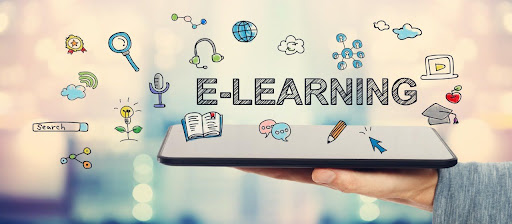The landscape of education has dramatically shifted in recent years, with eLearning becoming a pivotal tool in the knowledge-sharing ecosystem. From corporate training to academic courses, eLearning platforms are redefining how individuals absorb, retain, and apply information. At the heart of this transformation are specialized eLearning development agencies—teams of experts who blend technology with pedagogy to create engaging, effective, and interactive digital learning experiences.
But what exactly is an eLearning development agency, and why is it indispensable in today’s digital age? Let’s explore.
What is an eLearning Development Agency?
An eLearning development agency is a team of professionals who design, develop, and implement customized online learning solutions. These agencies collaborate with businesses, educational institutions, and non-profits to create courses tailored to their specific needs. Whether it’s for employee training, student learning, or public education campaigns, an eLearning agency leverages multimedia, instructional design, and technology to ensure effective knowledge transfer.
Key players in these agencies typically include instructional designers, developers, subject matter experts (SMEs), graphic designers, and project managers, all working cohesively to create eLearning modules that are visually appealing, interactive, and pedagogically sound.
The Core Components of eLearning Development
An eLearning development agency doesn’t simply throw together slides and quizzes; it follows a highly structured approach that ensures each learning experience is tailored to the target audience and its objectives. Some of the core components involved in the process are:
- Instructional Design
- Instructional design is the backbone of effective eLearning. A good eLearning agency will employ skilled instructional designers who understand how people learn and can organize content in a way that makes sense and fosters retention. The agency works closely with clients to define learning goals, target audiences, and course structures.
- Interactive Elements
- Interactivity is crucial for engagement in eLearning. This can include quizzes, simulations, gamification elements, or live polls. These interactive features help ensure that learners are actively engaged, rather than passively consuming information.
- Multimedia Integration
- Videos, graphics, animations, and audio elements make content more dynamic and accessible to different learning styles. The design and integration of these multimedia elements by an agency are done strategically to not only make the learning experience enjoyable but also to reinforce learning outcomes.
- Technical Development
- A significant aspect of eLearning development is the platform itself. Agencies often create courses using Learning Management Systems (LMS) or develop custom platforms based on the client’s needs. The technical expertise ensures smooth navigation, reliable performance, and an intuitive user experience.
- Assessment and Feedback
- Effective eLearning programs incorporate assessments, such as quizzes, tests, and performance tracking, to ensure that learners grasp key concepts. Agencies often design these tools so that they align with learning objectives and provide valuable feedback for learners.
Why Do You Need an eLearning Development Agency?
With the rapid shift toward digital learning environments, many organizations wonder if they should build eLearning content in-house or outsource it to a specialized agency. Here’s why an eLearning development agency can be your best bet:
- Expertise Across Domains
- Building effective eLearning requires expertise in not just technology, but also in education, design, and psychology. Agencies bring together experts from multiple fields, ensuring a holistic approach that covers all aspects of eLearning—from content creation to course delivery.
- Customization and Personalization
- Off-the-shelf courses might not meet the unique needs of every organization or learner. eLearning agencies tailor courses to your specific objectives, creating personalized learning journeys that engage and resonate with your target audience.
- Cost and Time Efficiency
- Developing a course from scratch can be time-consuming and costly if done in-house, especially if the team lacks expertise. eLearning development agencies have streamlined processes, tools, and experienced professionals that can accelerate project timelines while reducing the overall cost.
- Cutting-Edge Technology
- eLearning agencies are up to date with the latest trends, technologies, and best practices in the digital learning space. Whether it’s AI-driven learning platforms, gamification, mobile learning, or virtual reality, an agency can incorporate advanced features that enhance the learning experience and keep learners engaged.
- Scalability
- Whether you need to train 10 or 10,000 employees, eLearning development agencies create scalable solutions that can grow with your organization. Courses can easily be updated, duplicated, or repurposed, allowing you to maintain relevance and cost efficiency.
What Makes a Great eLearning Development Agency?
With the demand for online learning skyrocketing, many agencies have sprung up to offer eLearning services. However, not all agencies are created equal. Here are some key qualities to look for:
- A Proven Track Record
- Look for an agency with a portfolio of successful projects and satisfied clients. They should be able to demonstrate measurable results, such as increased learner engagement, higher course completion rates, or improved retention of knowledge.
- Client-Centered Approach
- The best agencies prioritize the needs and goals of their clients. They take the time to understand the learner’s context, work with you to develop meaningful content, and are responsive throughout the project lifecycle.
- Innovation and Creativity
- Great eLearning agencies think outside the box. They bring creativity to course design by using innovative strategies like gamification, scenario-based learning, and interactive storytelling to enhance learner engagement and satisfaction.
- Post-Launch Support
- Building the course is just the first step. Ensure the agency provides ongoing support after the course is live. This includes regular updates, troubleshooting technical issues, and measuring the course’s impact through analytics and feedback loops.
The Future of eLearning and the Role of Agencies
As technology continues to evolve, the scope of eLearning will expand to include more immersive experiences like virtual reality, AI-based adaptive learning, and microlearning modules designed for mobile-first consumption. An eLearning development agency will be at the forefront of this transformation, helping organizations embrace these innovations to deliver more effective and engaging learning experiences.
In Conclusion
The future of education is digital, and an eLearning development agency can help organizations leverage this shift to create meaningful, impactful, and scalable learning experiences. Whether you’re looking to upskill employees, educate students, or reach a global audience, partnering with an agency ensures you deliver high-quality content that truly makes a difference.


